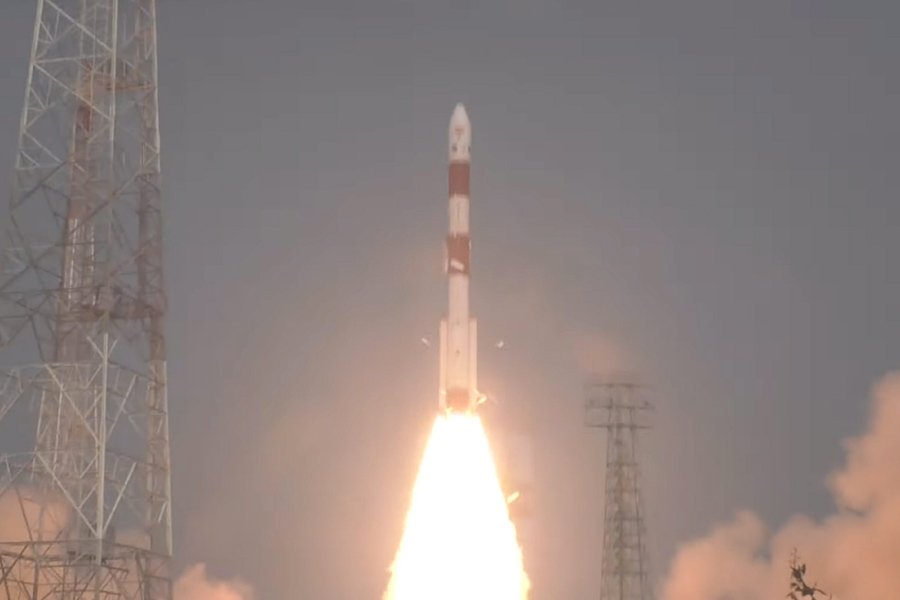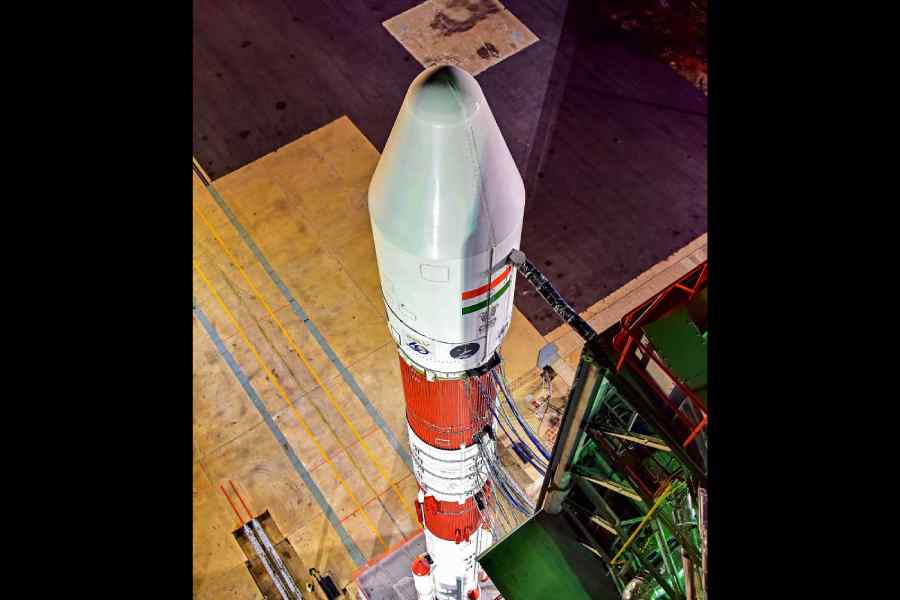ISRO on Monday successfully launched its maiden X-Ray Polarimeter Satellite that would offer several insights into celestial objects like black holes.
ISRO's ever reliable Polar Satellite Launch Vehicle (PSLV) in its C58 mission, placed the primary X-Ray Polarimeter satellite XPoSat into a 650 Km Low Earth Orbit as intended after lifting off at the pre-fixed time of 9.10 am from the first launch pad here.
As the 25-hour countdown concluded, the 44.4-metre tall rocket lifted off majestically with thunderous applause from spectators who had descended here in large numbers at this spaceport situated about 135 km east of Chennai.
The X-ray Polarimeter Satellite (XPoSat) is aimed to investigate the polarisation of intense X-ray sources in space.
According to ISRO, it is the first dedicated scientific satellite from the space agency to carry out research in space-based polarisation measurements of X-ray emission from celestial sources.
Emerging from the Mission Control Centre, ISRO Chairman S Somanath said, "Happy new year to all of you. So on 1 January 2024, yet another successful mission of PSLV has been accomplished. PSLV-C58 has placed the primary satellite XPoSat in the desired orbit." "From this point the orbit of PSLV 4th stage will be reduced to a lower orbit where the upper stage of PSLV which is described as POEM will carry out experiments with the onboard payloads and that will take some time," he added.
"Let me also announce the orbit that has been accomplished which is available through various routes, it shows excellent orbit and the deviations from the targeted orbit is hardly just 3km in circular orbit of 650 km and inclination is 001 degree which is one of the very excellent orbital condition and yet another announcement is that the solar panel of the satellite has been deployed successfully," Somanath, also the Secretary, Department of Space said.
The X-Ray polarisation serves as a crucial diagnostic tool for examining the radiation mechanism and geometry of celestial sources.
The primary payload of XPoSat is POLIX (Polarimeter Instrument in X- Rays) which is designed to measure polarimetry parameters by Raman Research Institute and XSPECT (X-ray Spectroscopy and Timing) built by the U R Rao Satellite Centre, Bengaluru. The Mission life is about five years.
Mission Director Jayakumar M said, "I am extremely happy to stand here to celebrate the grand success of the 60th launch of PSLV." "What makes this mission more interesting is the new technologies that are getting demonstrated in the POEM 3 experiment, we have the fuel cell, we have the silicon-based high energy battery, amateur radio satellite service...," he said.
"More importantly, one of the payloads is a total women engineered satellite, this I think showcases the women empowerment in the field of science and technology and all the payloads in fact demonstrate the reforms that are currently in the Indian space sector," he said.
"Today's successful launch has been made possible by the tremendous efforts put in by the whole group of people from team ISRO along with other stakeholders. This mission would not have been possible but for the wholehearted effort put in by various teams across different centres of ISRO," he said.
"I also thank IN-SPACe for acting as the nodal agency in identifying the payloads for POEM-3 experiment and for delivering the payloads adhering to our schedule," he added.












